This week we’re discussing Chapter 3: “The Wizard and I” – The “I Want” Song from Jack Viertel’s The Secret Life of the American Musical.
The “I Want” song is usually the second number in a show and often becomes one of its signature songs. They are quite often used for audition pieces because they’re usually sung by a single character and are exciting for an actor to throw themselves into.
A couple of ideas felt fresh and new on my re-read of this chapter. Let’s talk about a few.
1. The “I Want” makes the main character relatable.
Viertel states: “The hero has to want something that’s hard to get, and go after it come what may…. If the hero doesn’t have to work very hard, we won’t care very much.” 1
The audience doesn’t check their life baggage at the door. They bring it into the theatre with them. How can one character on stage be relatable to each audience member individually?
Make their want hard to achieve.
If it’s too easy for the protagonist to get what they want, the audience will lose interest.
They can’t relate.
So in the end, when the hero gets the “thing,” they audience is left with more than resolution. They also leave with hope. If the main character persists through all the twists, turns and obstacles and failures and still is able to achieve their goal, then maybe…just maybe…it’s possible for the rest of us.
Help us fall in love with the hero.
While Annie in the musical Annie doesn’t actually do (in action) a lot to get what she wants, her heart-wrenching “I Want” song “Maybe” makes the audience want to hold her hand and go on whatever journey she’s about to embark on. It also helps us understand how she endears the world around her so that they do the “doing” to change her world and provide what she’s been longing for.
In conclusion of this chapter, Viertel expounds on its namesake and perhaps one of the greatest “I Want” songs ever: “The Wizard and I” from Wicked. In Wicked, the setup of the main character is solid, and from Elphaba’s first arrival in the theatre (to grand applause without fail), her shortcomings and insecurities resonate with the audience. No, we’re not green or magical, but when Elphaba powers in to the second verse of “The Wizard and I,” her words begin to penetrate the surface of our heart and find the deep hurts we’ve all experienced in one way or another.
“No father is not proud of you, no sister acts ashamed.
And all of Oz has to love you when by the Wizard you’re acclaimed.
And this gift or this curse I have inside…maybe at last I’ll know why…
When we are hand-in-hand, the Wizard and I.”
Matched with the spectacle and dazzle of the score and the performer’s vocal prowess, we are all smitten and ready to champion Elphaba’s cause, no matter how uncertain, unwieldy, or unsuccessful it may be.
2. A good “I Want” song creates a “hill behind a hill.”
This was my favorite part of this chapter. The multi-layering of story, musical motifs, double-meaning lyrics and clever foreshadowing have always been something I geek out on.
So I love this idea of hiding the grand intangible theme inside the immediate want of the main character.
“There is a deeper, greater desire hidden behind the first one…. If you consider the initial desire as a hill to be climbed, [Little Shop of Horrors and Hairspray have] a hill behind the hill—and a more interesting hike in store than you might have imagined.” 2
Referring to My Fair Lady, Viertel helps us realize that initial “I Wants” can morph into something much bigger, or change altogether. Or the initial “I Want,” if achieved, can create a whole new problem to be sorted out.
“The original I Wants are suddenly forgotten and irrelevant. The problem is much bigger than anyone imagined. The second hill is spectacularly more interesting than the first, but the first was interesting enough to start us eagerly climbing.” 3
Does your “I Want” song imply a double-layered want? Can you plant in there some potential for a bigger hill to climb?
“I Want” songs referred to in Chapter 3
For more articles on the “I Want” song, see:
Story Design: The 7 Plot Points
Helping Characters Land Through Song

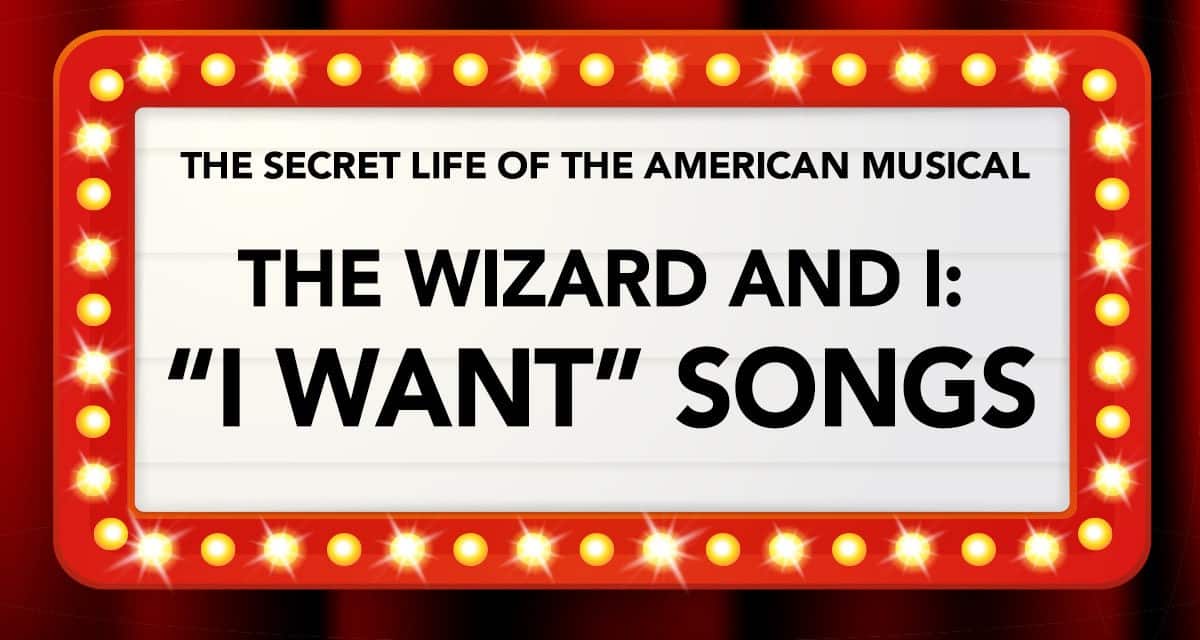

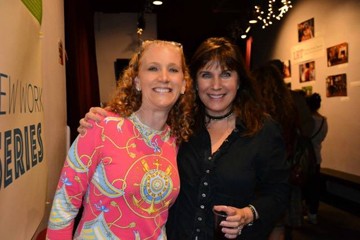
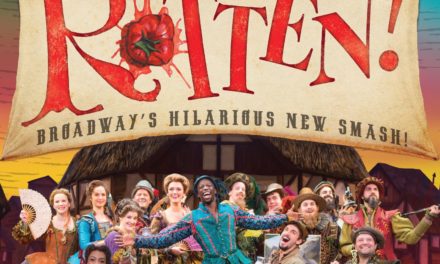


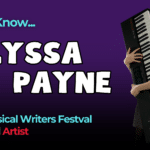

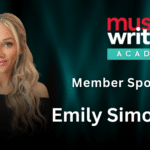
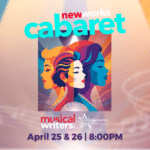








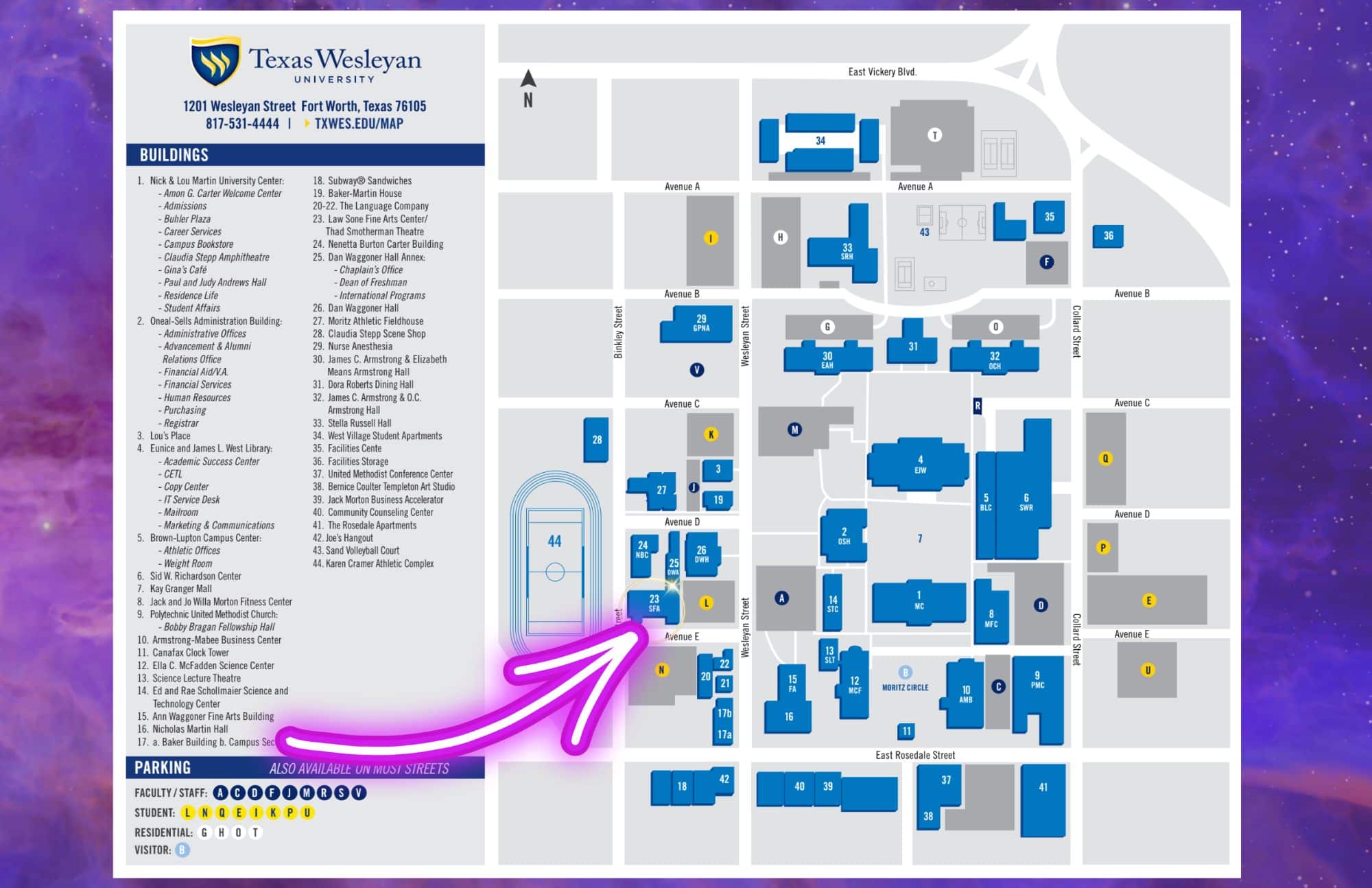
“Belle” from Beauty and the Beast is an Opening Number and “I Want” song all in one. A lot of musicals today combine the Opening Number and “I Want” song for efficiency. Are there potential drawbacks to doing that? Can you think of reasons we might want to keep the two numbers separate from one another?
I think efficiency is always the name of the game these days in musical theater. If you can accomplish multiple things with one song (without sacrificing the integrity of the story), go for it!
Sometimes, though, it’s important to have an opening number separate from an I Want song in order to establish the world. An opening number can be an I Want song for the larger community, like a “We want” song. A great example is Tradition from Fiddler on the Roof. It establishes the community and the world of the show, in which the most important thing is maintaining cultural traditions. This then leaves space for Tevye to come in and share his specific want, which still exists within the larger context of maintaining tradition.
I liked in this chapter how Viertel describes an I Want song as defining the protagonist as SEPARATE from the world of the show. West Side Story is a great example – the opening establishes the world of gang violence, and then Tony’s Something’s Coming is so light and hopeful and different from the dark world he’s living in. It makes it clear to me as an audience member that hey, I should really pay attention to that person, he’s going to be important.
Belle is a great example of a song that does ALL of that in one. The song goes a lot of places and is really a couple of songs in one – Belle’s interlude in the song could really be its own I Want song. But it establishes the world, it shows so clearly what Belle cares about and wants (“There must be more than this provincial life”) and it clearly establishes her as very separate from the busybody, small town life that everyone else is living. An opening number/I Want song that really works well!
Great discussions. Sometimes I hear a combination of “I Want” with “I Am” and both give you an idea of what the leads want and what they are like. What I “Want” can reveal what I “Am”.But one most likely dominates over the other.
I would think the music specifically may reveal one more dominant then the other as well.
It’s an interesting topic.
I think the “I Want” is what gives you a story to tell. It forces someone to take action, and thereby gets the story rolling. “I Am” doesn’t move anyone to action. Maybe the “I Am” songs can come later…such as “No Good Deed” in Wicked. Elphaba is saying, “from now on, just consider me wicked. I’m not going to try to be good anymore.” But even with that, I’m left waiting for that to change the course of her journey. I guess Wizard of Oz answers that, but the ending of Wicked doesn’t really show Elphaba living out her wickedness. She seemed resolute to give in to it during the song (which occurs late in the 2nd Act) but then goes pretty kind-hearted during “For Good” and then flitters off for a happy life with Fiyero at the close. I guess even my faves have some inconsistencies!
Speaking of “I wants,” there’s the overboard “I want” of American Psycho, which just had a fabulous production here in San Francisco. The opener shows the shallow and rapacious wants of the entire cast, and later, the protagonist’s panting for the perfect business card!